
Pin op Counseling
Een reden heeft te maken met de menselijke wil. Daarbij gaat het om iets waarop je invloed kunt uitoefenen. Een oorzaak gaat buiten de menselijke wil om. Je hebt dan te maken met iets wat noodzakelijkerwijs gebeurt. Taaltip: gebruik 'omdat' bij een reden en 'doordat' bij een oorzaak. Delen via Twitter.

Zin Ontleden Education, School
'Doordat' refers to an external (non human) event. So, to use the examples Bill provided in his comment: 1) He had a big cut on his arm DOORDAT he was in a knife fight. 2) He arrived late DOORDAT his car broke down. 3) I enjoy this class OMDAT it's fun. And you are correct in all three sentences! Seems like you got the theory nailed Bill!

Het verschil tussen ‘want’ en ‘omdat’ Wouter van Wingerden
Doordat describes direct causality. Something happened through direct action of something else. For example "Mijn been is gebroken doordat ik ben aangereden door een auto." The car drove into you, and your leg broke because of that. Omdat is used to describe circumstantial reasoning.

‘Omdat’ of ‘doordat’? Språkskole Claudia Boonstra
Omdat is a subordinating conjunction and, conversely, is used when providing an objective explanation for an action; when providing a reason/cause for the action or state of affairs you've just described. Let's look at another example: ("The man smiled because he was happy.") De man glimlachte omdat hij gelukkig was.

Omgaan en oplossen van Driftbuien Peuters, Een ouder zijn, Kinderen
omdat because (reason) doordat because (cause) aangezien, daar since, as dan than zodat so that (necessary outcome) opdat* so that (intended outcome) als 1). if 2). as, like zoals as, like mits on the condition that tenzij unless (*) In colloquial Dutch, opdat is often replaced by zodat. This is not entirely correct, as the latter refers to a.

VERBINDINGSWOORDEN Als Wanner En Maar Omdat Zodat Dus Doordat YouTube
The difference between WANT and OMDAT in Dutch | Dutch grammar Created with Sketch. You'll often hear that WANT and OMDAT are synonyms and that only the word order differs. This is indeed the most important rule, but it's not the complete story. Read on if you want to know all about the difference between these two words. Last edit: Fri Apr 22 2022

Home Zakelijk Schrijfadvies
Want/ omdat/ doordat Could someone explain the differences among the three? I still don't understand (doing self-study). TIA 26 7 comments Flilix • Native speaker (BE) • 3 yr. ago Grammatical difference: 'omdat' and 'doordat' change the order of the subclause, but 'want' doesn't. omdat ik honger heb want ik heb honger
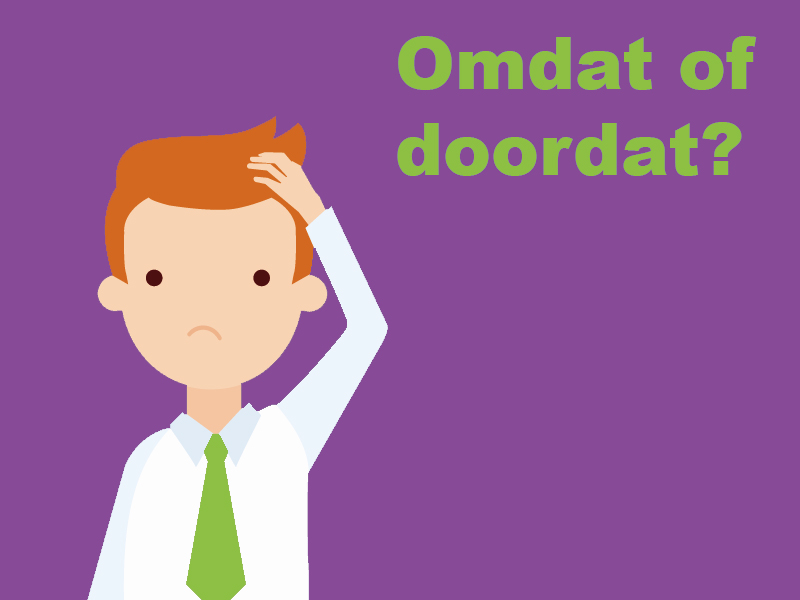
Wanneer gebruik je omdat of doordat? Correct Nederlands
Okay, 'omdat' is used in a sentence to explain a reason and the word 'doordat' is used in a sentence to explain a cause, like in cause and reaction. You see, in the first sentence, we use 'omdat' because there's a reason the 'He' person got wet, the reason is rain.
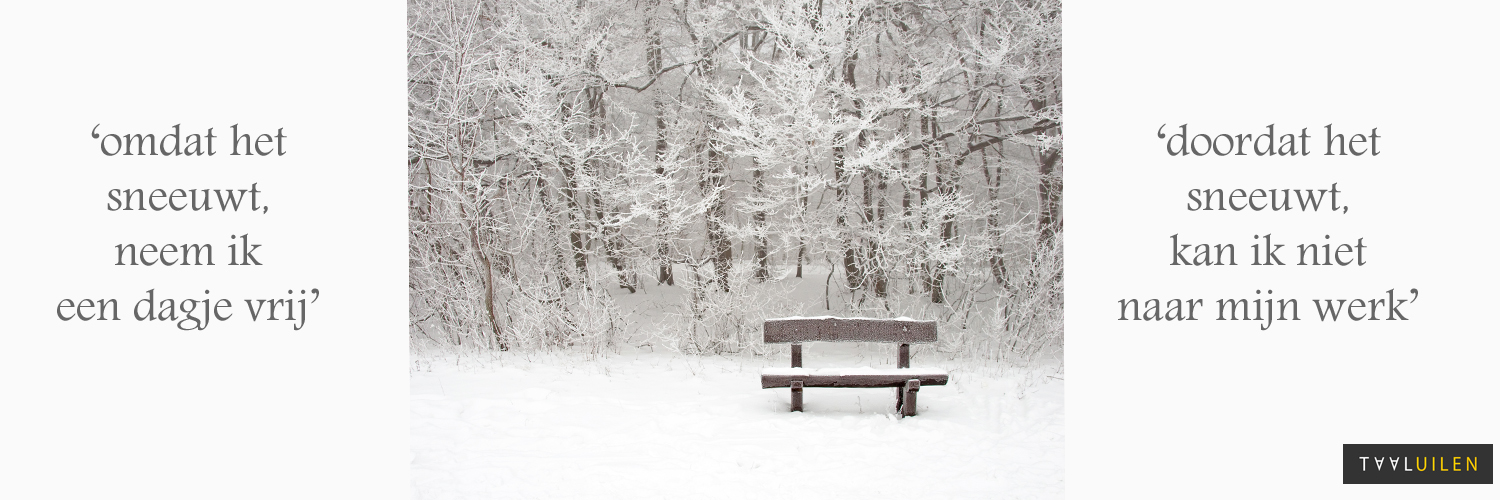
Omdat en doordat Taaluilen
Doordat beklemtoont de onontkoombaarheid van het beschreven oorzakelijk verband. Met omdat plaatst de spreker zichzelf meer op de voorgrond als subjectieve beschrijver/interpreteerder van de feiten. Tegen omdat (zin (5b) en (6b)) hoeft geen bezwaar te worden gemaakt.

OMDAT of DOORDAT? (Grammatica NT2 A2/B1) YouTube
1 Apr 2016 Featured answer Dutch English (UK) As for doordat, this implies a more direct cause and effect relationship than omdat and want, which imply more of a reason for something. Doordat is also used more for inevitable or definite causal relationships. Doordat de zon schijnt, drogen de straten op.

How to use these Dutch CONJUNCTION WORDS in subordinate clauses? (NT2 A2/B1) YouTube
What is the difference between omdat, doordat, and want? I am learning Dutch on Duolingo, and something they never clearly explained is the difference between omdat, doordat, and want. After extensive research I'm still very unclear on their differences. Any help would be gladly appreciated. :) 20 Sort by: Open comment sort options Fyrius
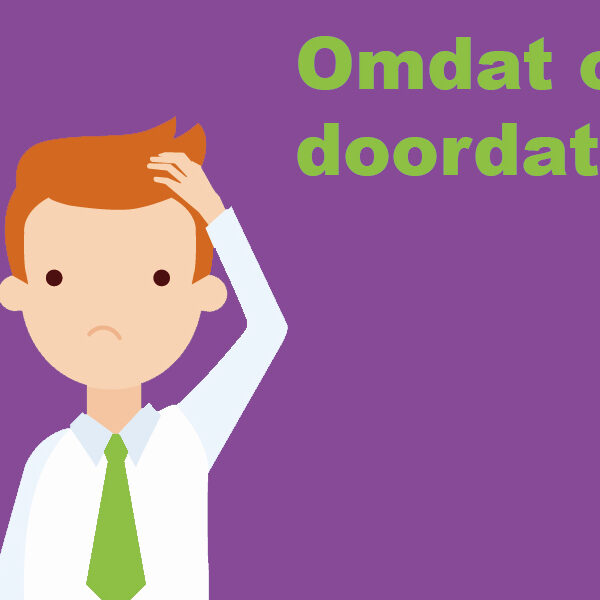
Enige of enigste Wat is correct? Of kan het beide?
Synonym for omdat Doordat: a. De straten zijn nat doordat het regent. (The streets are wet because it is raining) -> doordat = a. cause (what happens is inevitable, it doesn't happen because of human will or human influence) Omdat: a. De straten zijn nat omdat het regent. (The streets are wet because it is raining) b. Ik neem een paraplu mee omdat het regent. (I'm taking an umbrella with me.

Het verschil tussen 'want' en 'omdat' YouTube
doordat (also: omdat, daar, aangezien, vermits) volume_up. for the reason that {conj.} more_vert. Dat komt doordat de koeling soms niet meer werkt. ~~~ De zogenaamde "koelketen" wordt verbroken. expand_more And the reason is that the refrigeration somehow gets broken; what's called the "cold chain" gets broken.
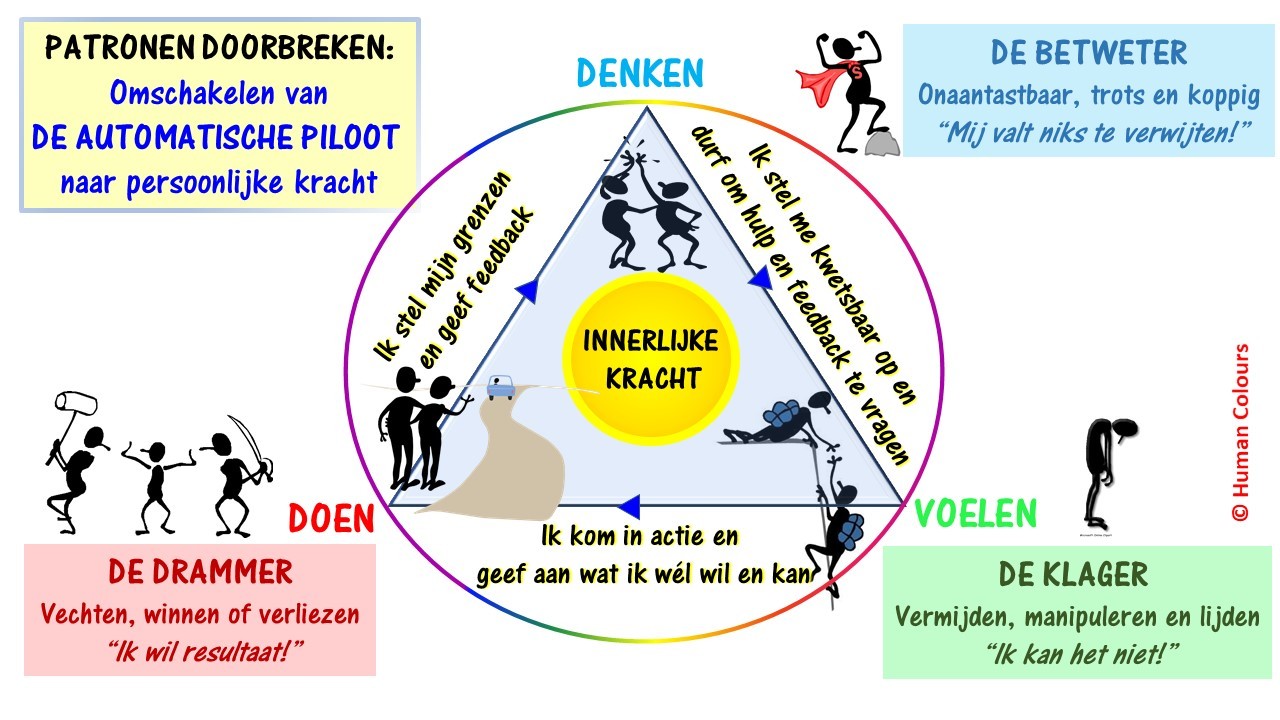
Ruzies ontstaan niet doordat mannen beter zijn in kaart lezen, maar omdat we blind vertrouwen op
Pronunciation [ edit] IPA ( key): /ɔmˈdat/ Conjunction [ edit] omdat because Synonyms: kôs, want Sy was laat, omdat die treine nie gery het nie. She was late, because the trains weren't driving. Usage notes [ edit] Omdat triggers the use of verb-final word order in the following subordinate clause.
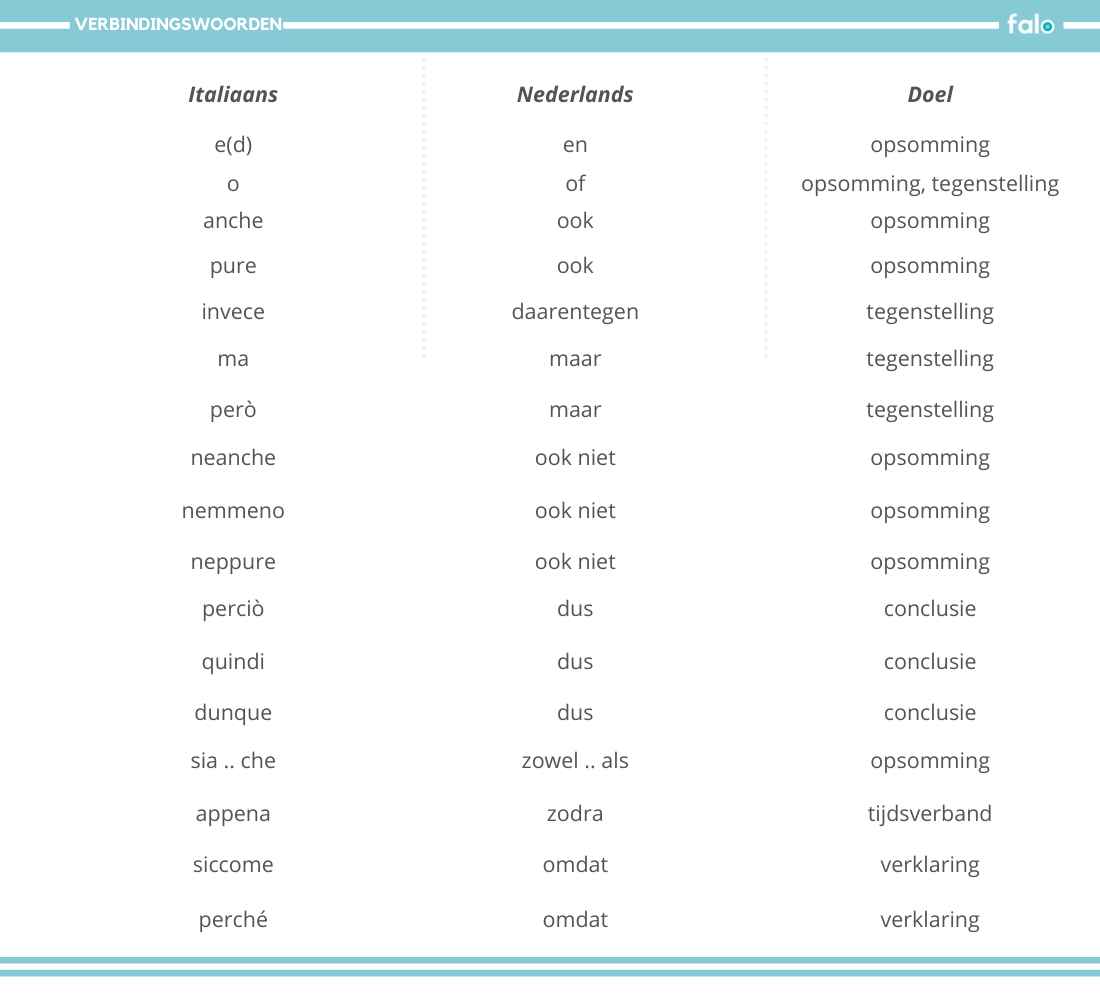
Italiaanse verbindingswoorden
omdat / doordat. Een oorzaak kan worden uitgedrukt met doordat of omdat. Een oorzaak ligt buiten de menselijke wil, heeft te maken met externe omstandigheden. Ze kwam te laat omdat / doordat ze autopech had gehad. Gisteren heb ik een belangrijke vergadering gemist omdat / doordat de trein vertraging had.

Because in the Dutch language omdat and want YouTube
omdat. reden, oorzaak. Het feest werd afgelast omdat de weersvoorspelling zo slecht was. Een oude taalregel luidt: gebruik omdat voor een reden en doordat voor een oorzaak. Een reden geeft aan waarom iemand iets vindt of doet. Een oorzaak geeft een 'noodzakelijkheid' aan, iets wat onvermijdelijk of onontkoombaar is.